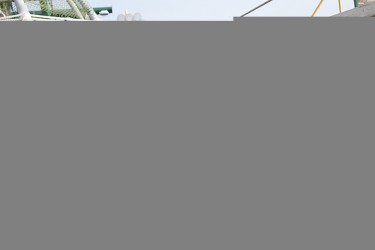

Photo Courtesy patricegilbertphoto.com
Senior Kat Ternus has been through it all.
Over the course of her time at the University of Miami, Ternus has worked in three different labs, gone on five research cruises, and is currently in the middle of writing a thesis on whale acoustics.
Doing research has opened a lot of doors for her.
“I feel like my most valuable experiences at UM were in the lab,” she said.
Through her work she has been able to network, travel and get what she thinks is a realistic view of what research entails.
“It is not as straightforward as textbooks make it seem,” she said. “There are things you learn in active research that most people aren’t even aware of until grad school.”
It takes dedication, Ternus said. Her first job, during the spring of freshman year, was spent cleaning tanks and vials and entering data into the computer. Many students might be bored by the simplicity and monotony of the work, but Ternus turned it to her advantage, using it as an opportunity to network with professors and graduate students in her field and get advice from experienced researchers.
“Over time, [the work] required more technical skills that were much more useful,” said Ternus, adding that her employer needed to know that she was trustworthy and competent before assigning her more complex assignments.
In her sophomore year, she applied for a paid job working with RSMAS professor Gary Hitchcock on a study of plankton. She also began working with the National Oceanic and Atmospheric Administration on the acoustics of whale sounds.
Both areas of research allowed Ternus to go on research cruises, including one to tag sperm whales and another to assess the effects of the Deepwater Horizon oil spill in the Gulf of Mexico.
Ternus’s early start as a researcher has given her a variety of experiences. However, students who would rather wait a few years can do that too. Of nearly 900 undergraduates involved in research this year, a majority started in their junior year, said Assistant Provost Michael Gaines.
Gaines works in the university’s Office of Undergraduate Research, one of the many resources students can use to find research opportunities. The office matches students with mentors in the field. Advisers and professors are other good resources, he said, because they often have a good idea of what opportunities are available in their respective fields.





